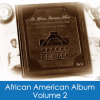Advanced Search
Lack of space for both books and programs also was a serious problem. In 1915, Andrew Carnegie was approached again for funding. His $15,000 gift was used to build an annex at the rear of the original building.
The war has ended but unrest at home is just beginning. Visit this decade marked by the entrance of rock 'n roll and desegregation. Read about the infamous US Supreme Court Case, Brown vs. Topeka Board of Education, which outlaws school segregation by race.
Dr. John Taylor Williams (1859-1924) was a prominent figure in the history of African-Americans in Charlotte. Not only was he one of the first three black doctors licensed in North Carolina, Williams also served an educator and a businessman.
Second Ward lies within the city of Charlotte, NC, south of Trade Street and east of Tryon Street. Boundary Street and Little Sugar Creek formed its other boundaries.
Death Details/Burial/Memorial Services: In his autobiography, Evangelist Billy Graham wrote that during his youth, Julian was his best friend. He met his wife at Central High School and married her at Buckingham Air Force Base in Florida in May 1943.
In school, Glenn Miller was nicknamed "Razzy," and in pro baseball, his teammates called him "Preacher." Born in Rockwell, North Carolina, Miller went onto play baseball, basketball, and football at Lenoir Rhyne College.
An African American Album: The Black Experience in Charlotte and Mecklenburg County was first published as a book of photographs in 1992. It documented the community's history up to 1950.
Edith Van Gilluwe of New York was a Professor of Violin at Elizabeth. Located on Hawthorne Road, it opened in 1896. This popular school for girls remained in Charlotte until 1915 when the school relocated to Roanoke, Virginia.
Presbyterian College for Women opened its doors in 1896. It was located at 600-616 North College Street on the corner of 9th Street. Young women from around the Carolinas attended this liberal arts school.
Dorothy Simpson Masterson (July 28, 1897 - March 22, 1991) has been called Charlotte's First Lady of the Theatre. She was an experienced and professionally trained actress. Mrs.
May 31, 1963 - A young, energetic black preacher named Martin Luther King, Jr. speaks in Charlotte to a gathering of six black high schools. Just 10 days earlier, Johnson C. Smith University students marched downtown to protest segregation, laws that separate people according to race.
May 18, 1959 - Wilbert Harrison's "Kansas City" is number one on the pop charts.
August 30, 1967 - Marshall is appointed to the U.S. Supreme Court.
1976 - Reverend Burke documents urban renewal.

















